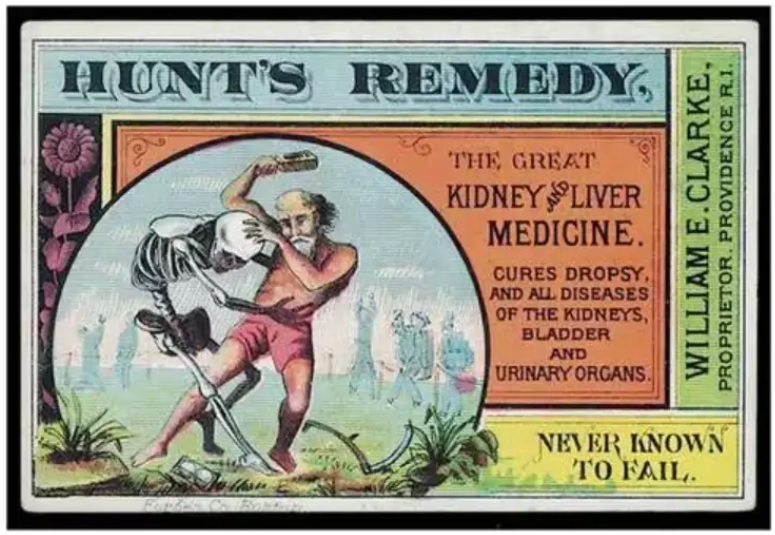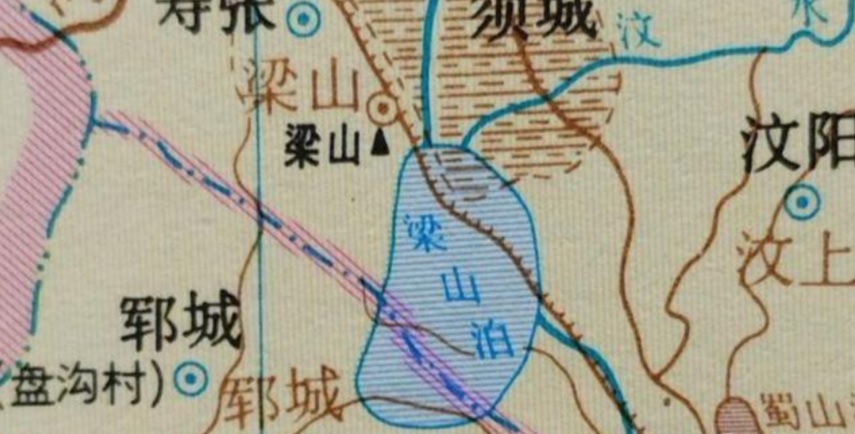While such records are absent in other histories?
Other histories also have records of cannibalism during famines, but only in China are there records of killing one’s own living children and consuming them. What is the reason for this?
Answer 1:
Because the attitude towards history in other countries is different from China’s. Japanese villages ate several “dog gods” (Inugami – people wearing dog masks eaten, often the weak in the group became the Inugami). On the Korean peninsula, when famine loomed, armies were sometimes sent in advance to massacre villages; the upper classes feared these people might do the unthinkable. In European villages, extra pots of meat stew were common; they ate stew even without famine (to save fuel, everything went into the stew in Europe). American settlers voted on the order of who would be eaten (this is something you wouldn’t think of without experience). Take the often-mentioned Irish example, the British burned many records at the time because it was too disgusting; even the British found it revolting. At least the British ate infants served on plates, not raw. By the way, Westerners seemed to think it was natural for parents to eat their own children during famines. Of course, parents allowing their children to eat them also happened. They didn’t seem to carry a moral burden about eating family; everyone is God’s lamb. Afterwards, confess to God and it’s done. Could kinship bonds be higher than love for God? Here’s something interesting: every part of America has legends of cannibals, leaning either towards mutation or pure aliens. Do you think these stories are just American imagination, or are they needed to explain large numbers of gnawed human bones? And the outrageous, unacknowledged disappearance rates everywhere? Famines have indeed decreased, but eating only corn can cause severe deficiencies in specific nutrients. If anyone is interested, they could study whether the obsession with certain meats among some groups in India is related to their community’s vegetarianism.
Answer 2:
I’ll give an example. The tomb of a local governor from the First Intermediate Period of Ancient Egypt was once unearthed. His epitaph boasted of his achievements and included the line: “Under his governance, cannibalism never occurred.” Guess why he felt the need to write that line.
Answer 3:
Besides China, the world hasn’t recorded Halley’s Comet many times either. So, does Halley’s Comet not exist??
Chinese agriculture, so advanced, couldn’t withstand natural disasters, leading to the tragedy of people eating each other. How could those with worse irrigation and even poorer agriculture escape this curse??
Answer 4:
Now, there are two ship’s logs, flipped to the same day:
The first one writes: “The captain was drunk today.”
The second one writes: “The captain was not drunk today.”
Which ship do you think had the bigger problem?
Answer 5:
The Shanghai County records from the late Ming Dynasty mention one instance of “Great Famine – People ate each other” (岁大饥,人相食).
Seeing these six characters, most people will automatically imagine hellish scenes.
But digging deeper reveals: Shanghai County had hundreds of thousands of people. After several years of severe disaster, only one case of cannibalism occurred, which was then singled out as an example and severely denounced by the county magistrate.
Answer 6:
Because it’s not recorded. It’s 2025 now. If not for watching certain videos, how many people know that cannibalism still exists in India today? That it’s used as a means of revenge, and that there are even “meat processing plants” specifically handling human meat?
Answer 7:
Chinese history books record events of cannibalism and eating children from a perspective of pity, sorrow, and criticism. The purpose is to teach the Han people: Do not eat people.
Since the Zhou Dynasty conquered the Shang and the Duke of Zhou established the Rites (周公制礼), the upholders of Han civilization have viewed cannibalism as a profound human tragedy. They have fought against cannibalistic peoples for thousands of years.
Whereas certain foreign scriptures describe cannibalism in a tone of praise and glorification. You haven’t read enough, so you don’t know, do you?
Look at the Old Testament of the Bible. See how it praises the saint Abraham, who was prepared to roast his own son and offer him to God to eat.
Fortunately, Jesus later changed the scriptures, otherwise, you’d encounter cannibals daily abroad nowadays.
Answer 8:
Well-compiled historical records also have side effects. That is, all kinds of dark events are recorded. So it makes it seem like Chinese history is full of terrible things? Look at the West. They relied on blind bards singing for history. They only sang the nice parts. One thing is certain: before pesticides and chemical fertilizers, human history was a chronicle of cruelty. Cruelty beyond imagination. Farming peoples had it relatively better. After all, grain is easier to grow and store. The survival of nomadic peoples was truly miserable. Relying on grass, their lands prone to drought and snow disasters. And if livestock fell sick, they could lose everything. Under such harsh conditions, could they resist eating “two-legged sheep” (两脚羊 – euphemism for humans)? The periods when non-Han peoples entered the Central Plains en masse (五胡乱华, Wu Hu uprising) and when the Tang Dynasty army had large numbers of non-Han soldiers were both times when eating “two-legged sheep” was prevalent. This probably isn’t a coincidence? Ancient China was the most advanced: the most advanced agricultural tools, the most advanced water conservancy, the most advanced farming techniques. Even trade involved foreigners traveling thousands of miles to exchange gold and silver for silk and porcelain. And you say ancient Chinese people had the worst lives? What a ridiculous judgment. Of course, the Qing Dynasty can be said to be an exception, as it was a top-down great reversal of civilization. Others weren’t wrong to discriminate against us as the “Sick Men of East Asia.”
Answer 9:
Because in the West, exchanging children to eat was a commonplace event, an everyday occurrence.
This is recorded in the Bible.
Two couples had nothing to eat and agreed to eat each other’s children. On the first day, they ate Couple A’s child. On the second day, Couple B hid their child.
This matter was brought before the king. The king administered justice impartially and ordered Couple B to hand over their child.
Is this story meant to highlight the suffering of the people?
No, this story glorifies the greatness of the king’s impartial administration of justice.
Answer 10:
Europe practiced cannibalism far more than China. In Chinese history, aside from a very few psychopaths who enjoyed eating people for fun, other incidents of cannibalism were caused by objective reasons like war and famine, not because ancient Chinese liked eating people. Europe was different. Besides war and famine, due to religious and cultural factors, ancient Europeans genuinely would eat people for fun, to show off, and it seems this was common among the nobility. Ancient British royalty even discussed which parts of the human body were tasty, delicious, and nourishing. Europe also had a tradition obsessed with corpses: human skin books, ancient European medical texts recommending human flesh as a tonic (China’s Compendium of Materia Medica also has entries on the efficacy of human flesh), human blood, human bone potions (highly popular among European nobility and religious figures), eating people to cure diseases, the belief that infecting others with syphilis could alleviate one’s own, stealing corpses, even importing and stealing Egyptian mummies to grind up for medicine, using human fingers and bones as talismans, using human skulls as crafts and collectibles, and coveting whole human skins, especially those of young women (news still breaks today of Western clients secretly offering high prices for such things). Europeans didn’t just eat the living; they particularly loved stealing corpses to eat the dead.
Europe also had a tradition of “eating blood-soaked bread” (人血馒头). For example, after beheading a noble or notable person, Europeans would use bread to soak up the blood and eat it. This was because Europeans at the time believed the blood of executed criminals was the preferred medicine for many epilepsy sufferers and possessed atoning functions. Hans Christian Andersen witnessed in his youth people drinking blood flowing from under the gallows to cure illnesses. The trend of corpse theft ran through all of ancient European history. In 19th-century France, teeth from soldiers who died at the Battle of Waterloo were even used to make dentures. Didn’t ancient Rome mock: “The Germanic tribes are all cannibalistic, blood-drinking barbarians”? Previously, I thought this was Roman exaggeration. Now it seems it might have been a factual description.





Alright, feelin’ like a high roller on fun222vip! It has exclusive games only available for vip members. Gotta try this out and maybe become a vip member someday! Come play at fun222vip: fun222vip
Jilipark app is the way to go! So convenient and easy to use. Gotta love playing on the go. Get the jilipark app now!